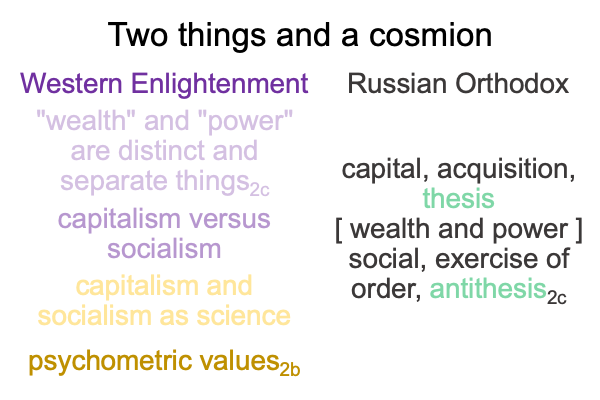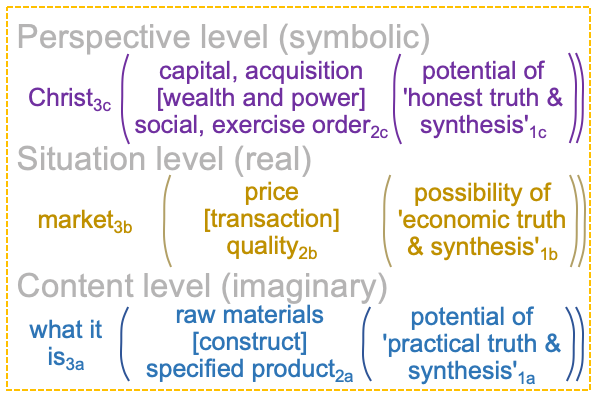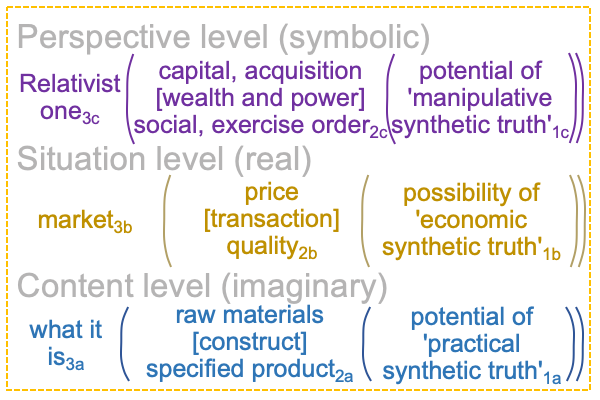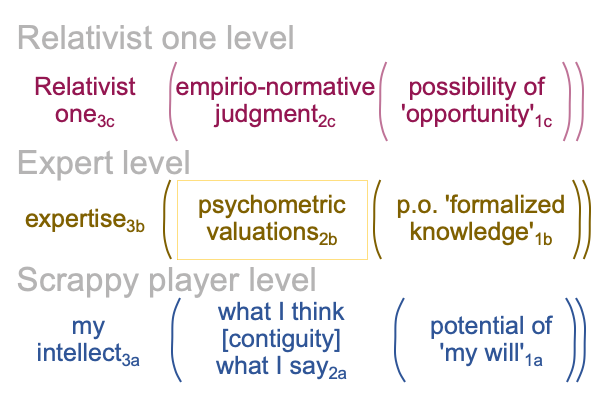0333 Why is contemporary politics immanently theological?
An answer is to be found in chapter six.
According to Zizek, revolutionary theory is immediately practical and grounded in subjective engagement.
Does that sound like the term, “psychometric valuations2b“?
But, how can psychometric valuations2b work when the theological dimension2c of our everyday lives has pre-empted by the realness of {price [transaction] quality}2b?
What if we are the {raw materials [that constitute] specified products}2a?
The intellectual transit within the West, culminating in the ascent of a post-truth Relativist one3c, does not seem to occur in the East, the former seat of Soviet-style socialism.
0334 Here is comparison.

In many ways, Christian Atheism exhibits Zizek’s subjective engagement, as someone who is familiar with the Eastern Orthodox world, with a western world that has replaced Christ3c with the Relativist One3c, who stands within the box of psychometric valuations.
0335 In this examination, Zizek offers Christ3c, who belongs to the realm of actuality in the Trinity, as the normal context for a materialist (or “atheist”) reading of a perspective-level reality. That perspective-level actuality2c contains the terms, “wealth” and “power”.
But, not in a way that anyone in the West imagines.
And, in a way that anyone in the East takes for granted.
Zizek explores the corresponding perspective-level nested form using Lacan’s terminology, Hegel’s vision and the image of the parallax. He uses the foils of Buddhism and quantum mechanics to extend his reading into the situation and content levels. Zizek’s configuration belongs to the symbolic. But, what is the symbolic without the real and the imaginary?
0336 To me, a law familiar to the field of classical economics falls out of Zizek’s discussion on Buddhist economics. In the following figure, I use this to characterize the situation and content levels.
This gives me hope that Zizek’s discussion concerns um… the political philosophy of economics… along with… the contiguity that is [wealth and power].
With Christ3c, [wealth and power]2c constitutes the contiguity between two real elements, capital & acquisition2c and social & exercise of order2c, and this contiguity remains intact.

What else does this say?
Zizek’s configuration puts classical organizational (content-level) and economic (situation-level) theory into perspective.
Plus, Zizek’s configuration poses the formulation that Christian atheism challenges.

0337 A comparison between the two previous figures is revealing, because both enter the slot for psychometric valuation2b.
Psychometric valuation2b?
In the e-book, Original Sin and the Post-Truth Condition (by Razie Mah, available at smashwords and other e-book venues) Razie Mah develops the interscope for the post-truth condition. This examination suggests that Zizek’s configuration transmogrifies into a psychometric valuation2b in the post-truth condition.
0338 Here is a picture of the interscope for the post-truth condition.

I repeat, the entire interscope of Zizek’s configuration fits into the situation-level actuality2b for the post-truth condition.
